Lamborghini’s Mitja Borkert discusses the company’s new Temerario super sports car
The new Lamborghini Temerario was unveiled this month in California, ushering in a new era of electrified performance to replace the company’s best-selling Huracán model
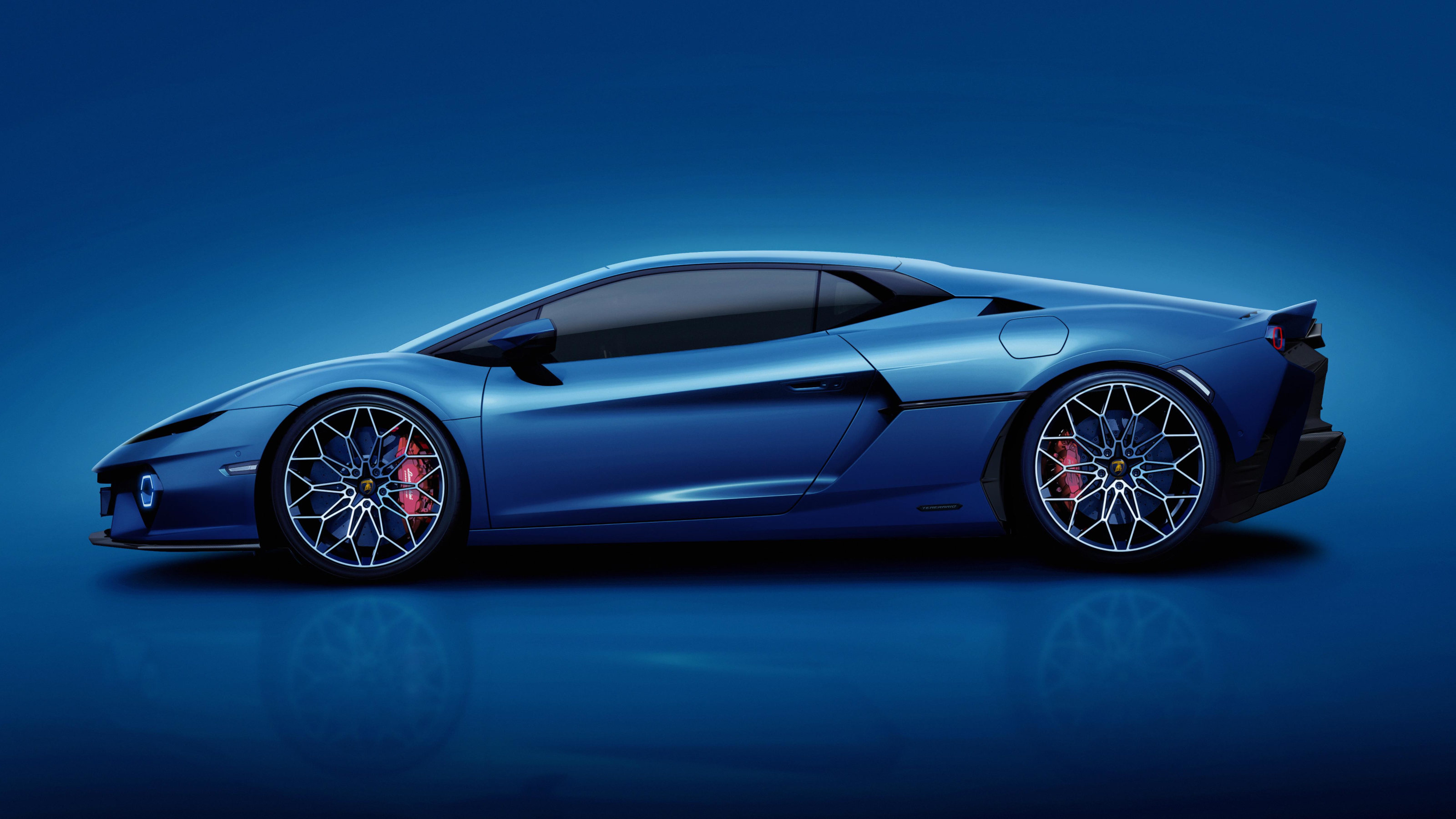
Lamborghini chose Monterey Car Week to reveal the successor to its crucial Huracán model – ‘the greatest-selling super sports car’ in the brand’s history. Introduced in 2014, the mid-engined Huracán was ripe for replacement, and given how much the world has moved on in the past decade, its replacement looked likely to incorporate new technologies and approaches.
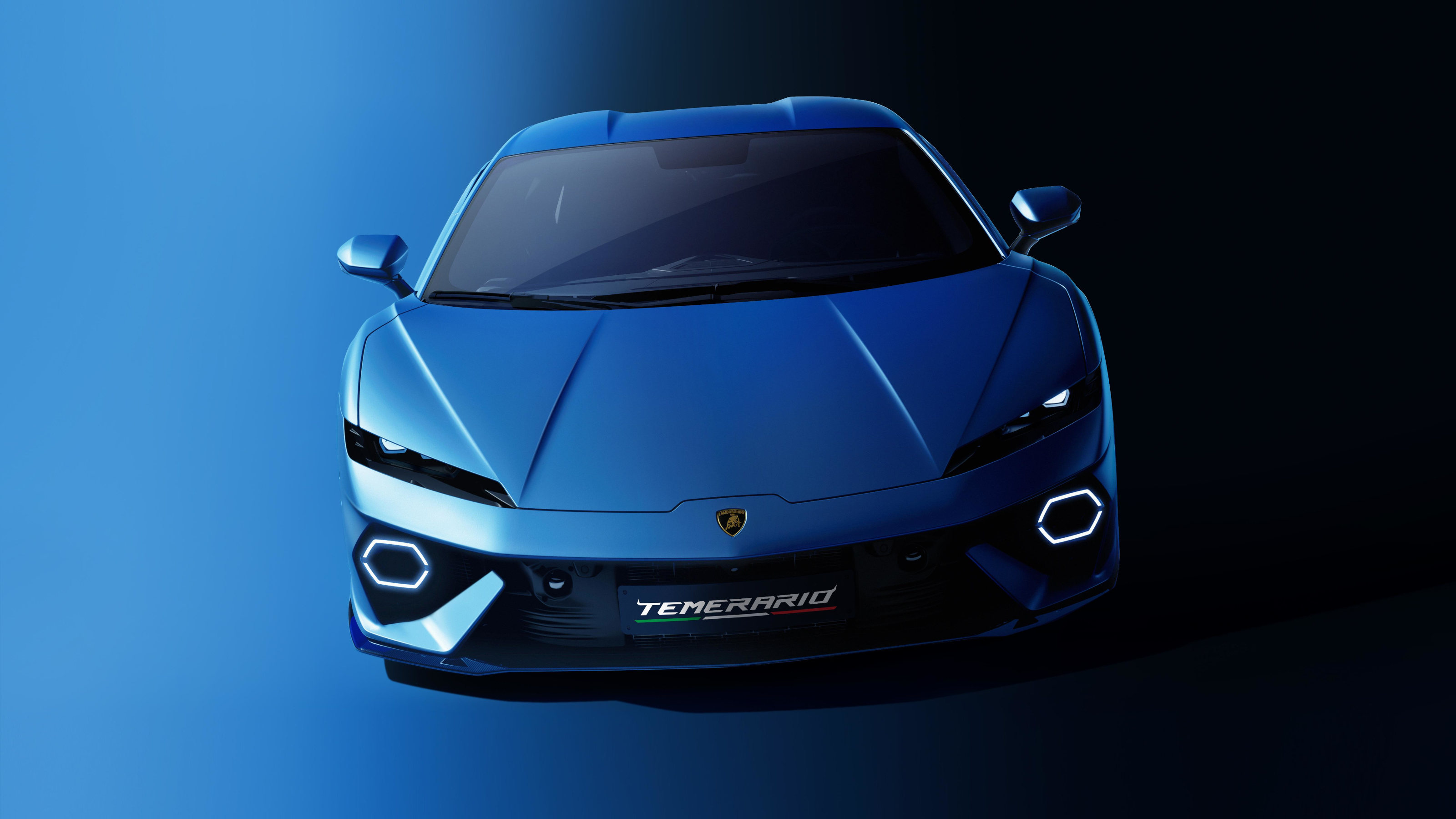
Lamborghini Temerario
The new Lamborghini Temerario continues what the company calls its High Performance Electrified Vehicle strategy (HPEV), following the flagship Revuelto plug-in hybrid model. The company now has a fully hybridised line-up, if you take into account the new Urus SE as well, putting it a step ahead of many of its close competitors.
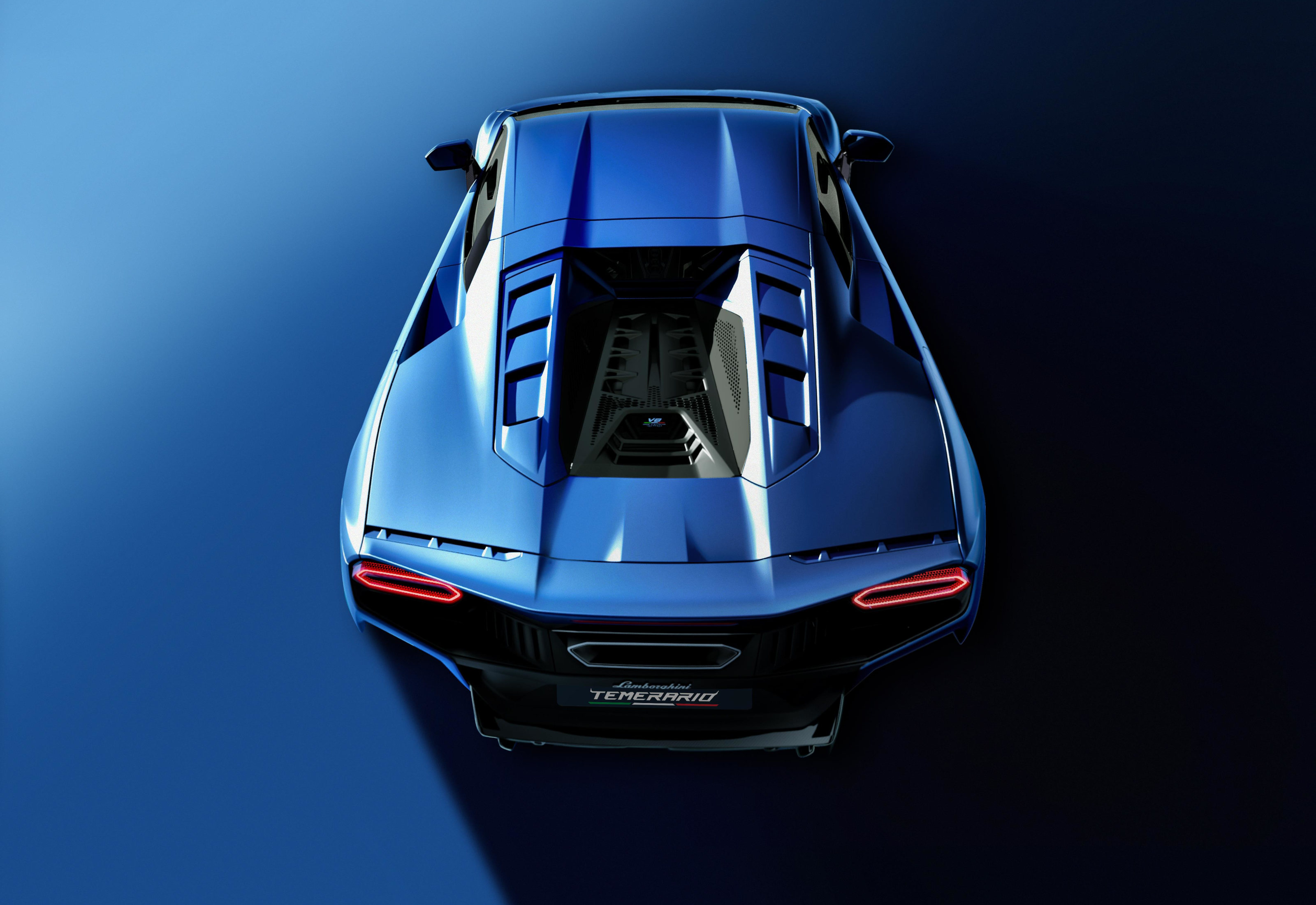
Lamborghini Temerario
The new car retains the mid-engined layout that has defined every sporting Lamborghini since the Miura. In addition to a twin turbo-charged V8, there’s also a powerful hybrid system which creates enough power for a 0-62mph time of 2.7 seconds and a class-leading top speed of 210mph. As noted by Lamborghini’s Chairman and CEO Stephan Winkelmann, ‘every new Lamborghini must surpass its forerunners in performance terms,’ a formidable engineering and technical challenge.
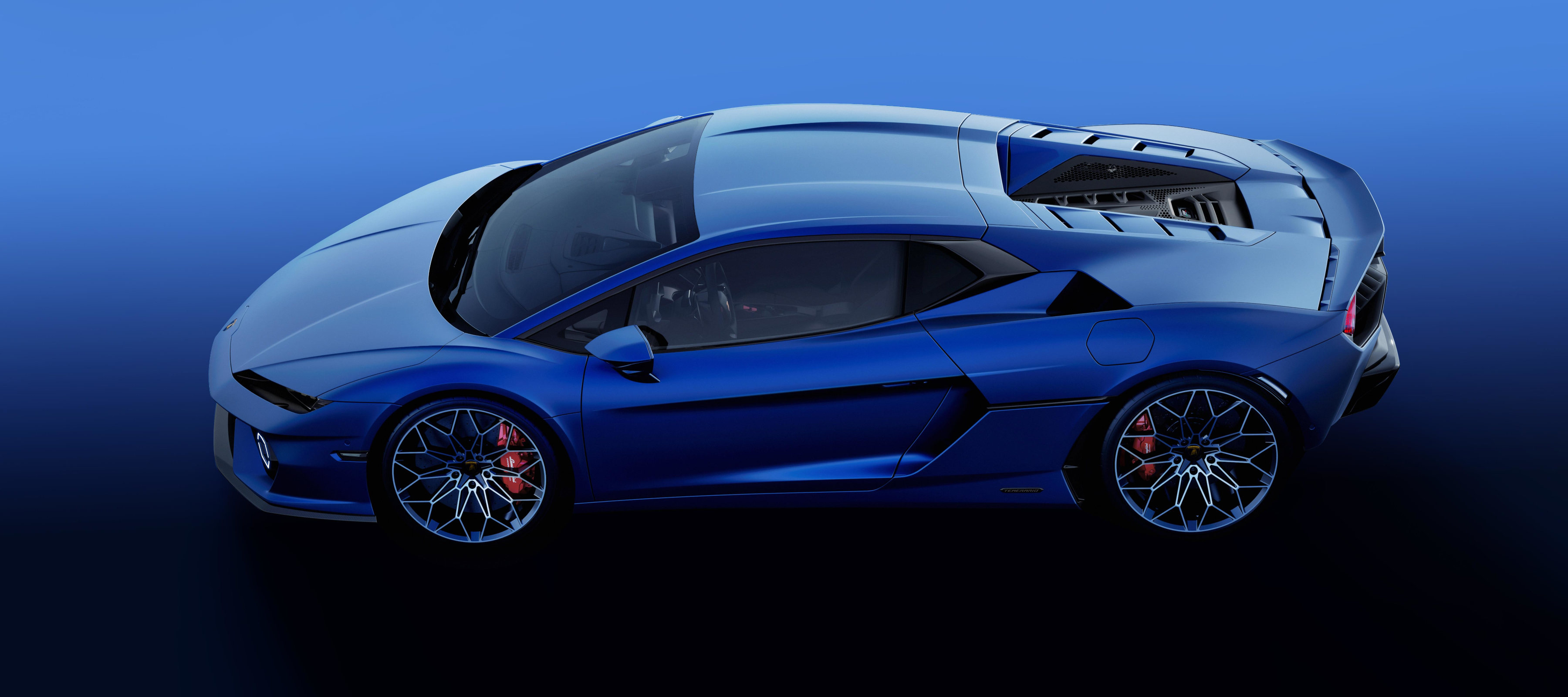
Lamborghini Temerario
As part of this relentless quest for more power, Lamborghini claims the Temerario is the ‘first and only production super sports car engine able to reach 10,000 rpm’. If the residents of Monterey found Lamborghini’s fleet of corporate Uruses (Uruii?) to be a little on the shouty side, expect the Temerario to cause even more of a ruckus.
We spoke to Lamborghini’s Design Director, Mitja Borkert, about the genesis of the new model.
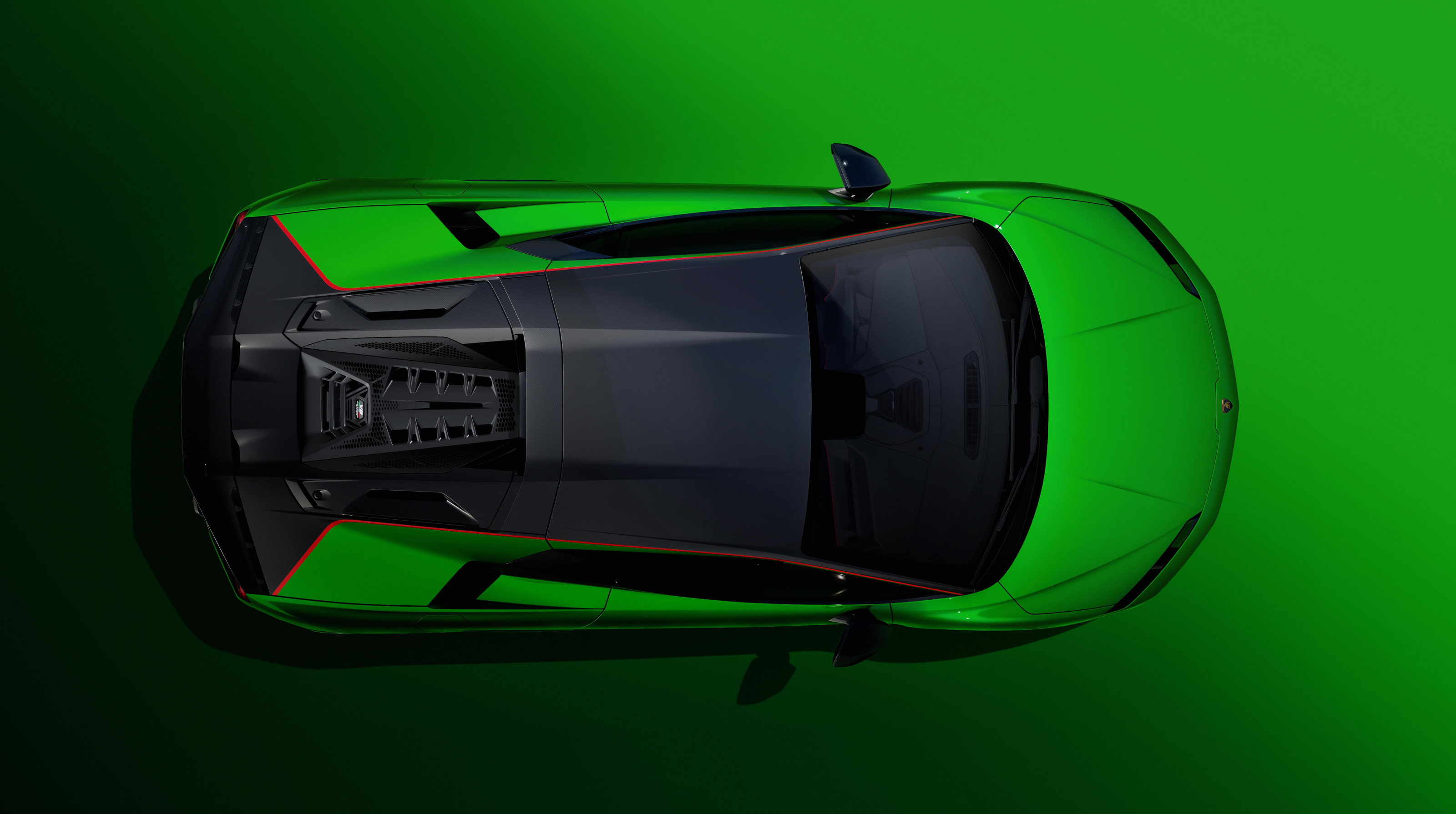
Lamborghini Temerario
Wallpaper*: Describe the design approach behind the new Temerario
Mitja Borkert: It was a personal mission to create something that was agile, yet with a compact volume. The Temerario continues the new design language started by Revuelto – it’s about giving adrenaline a shape.
Receive our daily digest of inspiration, escapism and design stories from around the world direct to your inbox.
W*: What are the distinctive design elements of a modern Lamborghini?
MB: We’re very recognisable – especially our silhouette. You can see this in the Gallardo in 2003, through to the Huracán in 2014 and now its successor, the Temerario from 2025. The new car is 40mm longer than its predecessor and has a bigger cabin as a result, although it’s still 273mm shorter than the Revuelto. The shapes and ‘muscles’ of this car are very sensuous, almost human.
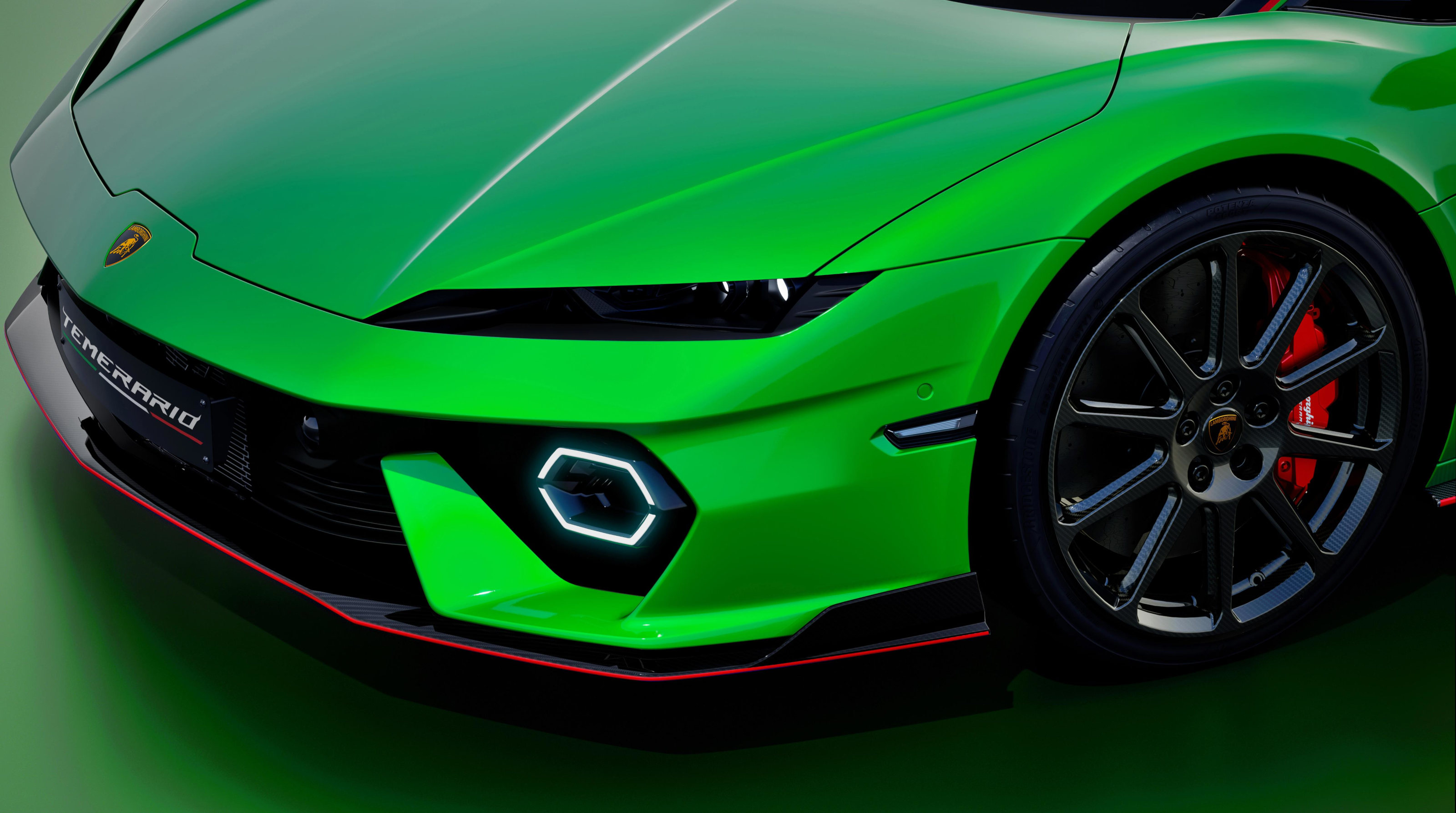
The daylight running light doubles as an aero air intake
W*: What’s your typical design process to shape such a distinctive sports car?
MB: We always start with sketches. For this car, the hexagon was the design element we start with. You can see it in the side air intake, the hexagonal daylight running lights, the exhaust, the taillights. The car is divided into two, with very clean lines on the upper surfaces, and a lower level that catches shadow for more drama. We now have a very distinctive lighting strategy for all three of our models, Urus, Revuelto and Temerario. It’s very important that our cars each have their own distinctive character.
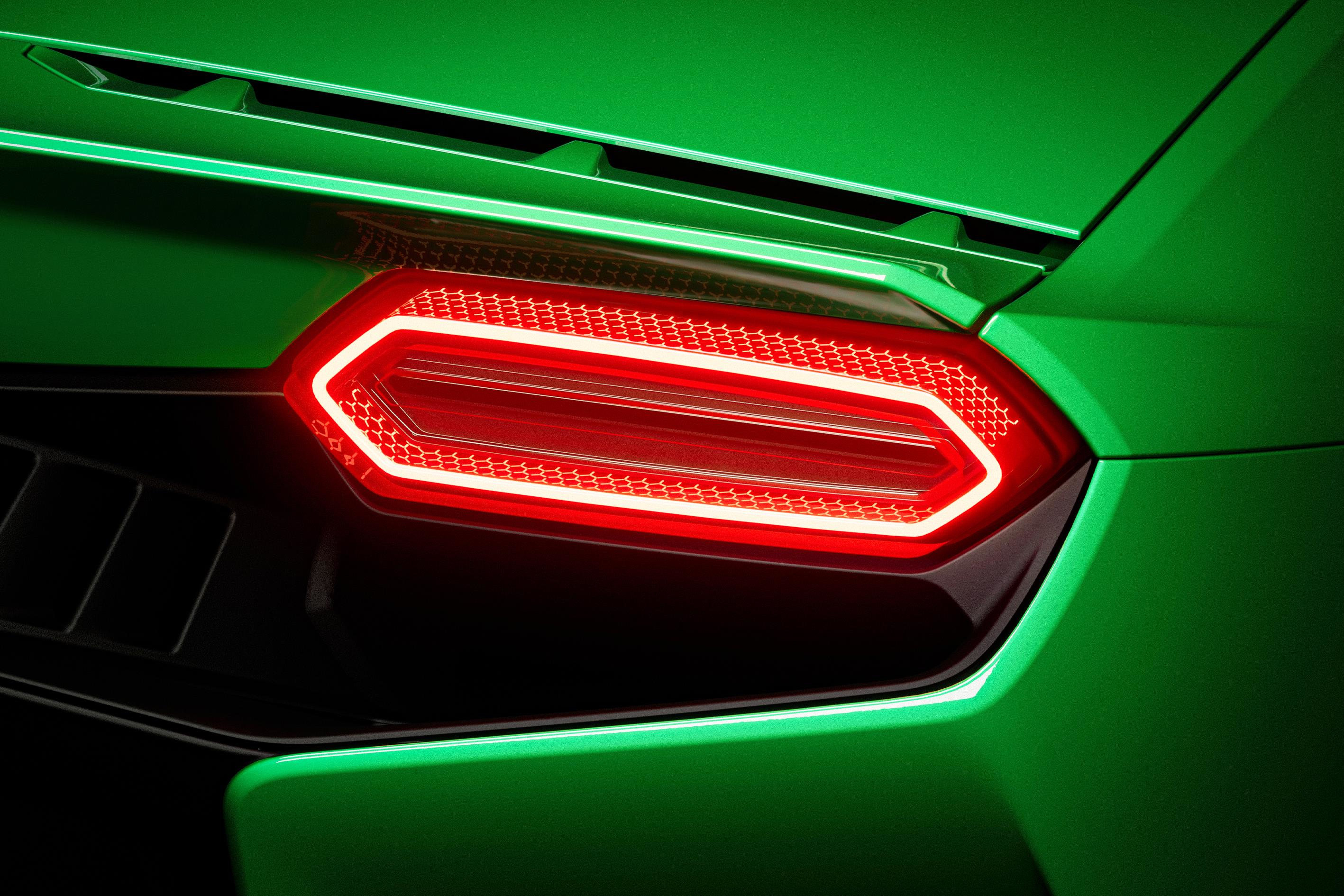
The Lamborghini Temerario's hexagonal taillight
W*: Are there are notable details that set this car apart?
MB: The way the rear tyres are exposed, for example, or the deep side intakes. Also, we don’t want to follow the trend of having light bars across the entire rear of the car. You’ll also see that the hexagonal DRL at the front of the car are also aero ducts, channelling air to an exit just below the main lights.
The rear of the car is almost like a spaceship – the V8 engine is at the heart of the design. We have a lot of personalisation choices as well, with 20” wheels at the front and 21” at the rear and three different wheel choices, including the first full carbon fibre wheel and a hexagon-based design as well.
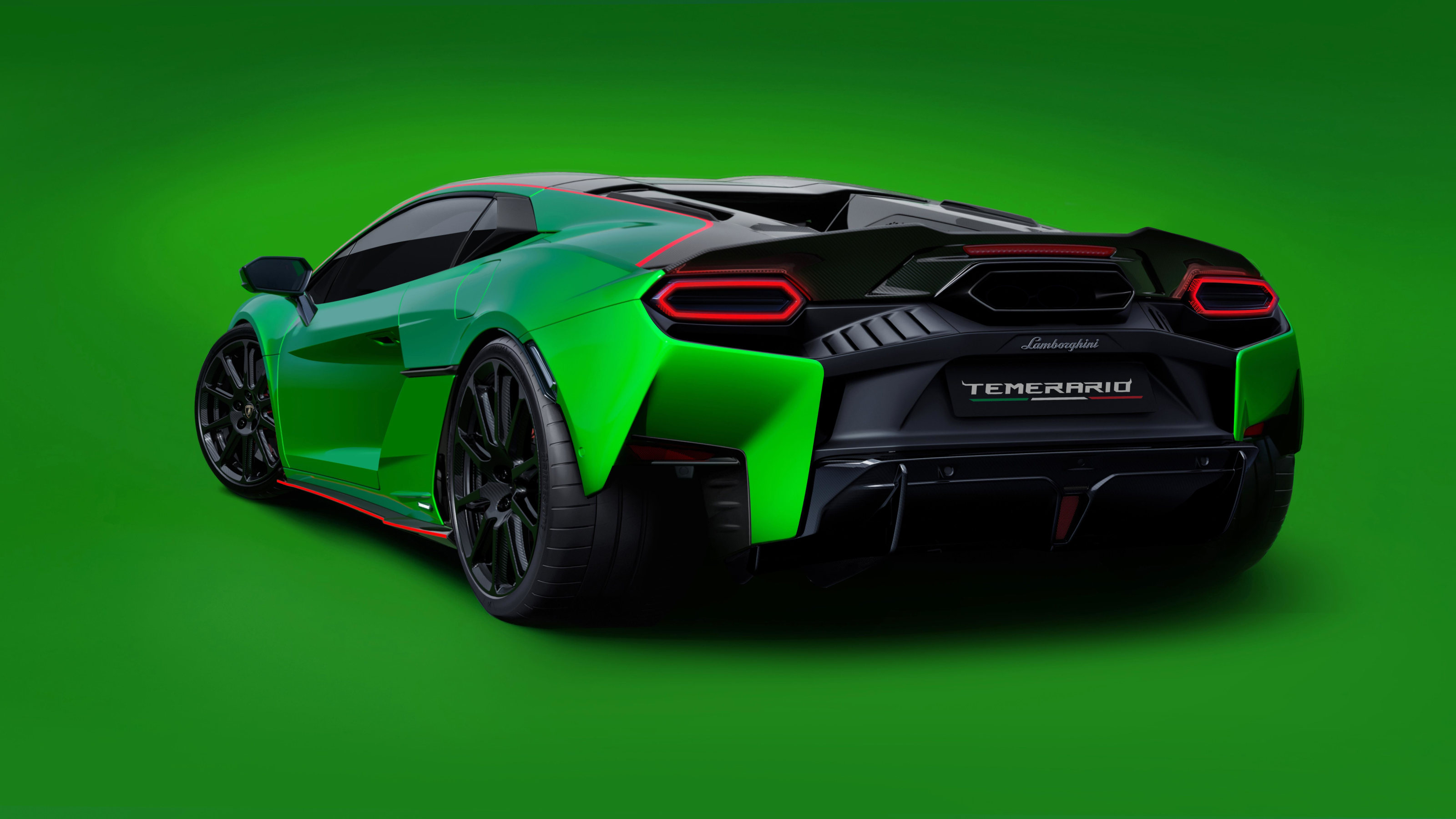
Lamborghini Temerario
W*: Will there be other options?
MB: Yes, we’re going to launch two versions of the car right from the start, with a track-focused lightweight package that includes different design elements, a new splitter and rocker panel, carbon rims, bonnet and rear wing.
W*: What will the interior be like – it’s yet to be revealed?
MB: Yes, it’s designed to feel like a cockpit, with a start-stop button, switches and rotary controls that feel like a jet. We’ve always believed in creating very mechanical elements in our interiors. It’ll be a spaceship on the outside, alien on the inside. There’ll be three screens, including one for a passenger, with very distinctive and different graphics. Also, there’ll be many colour options, perhaps around 400.
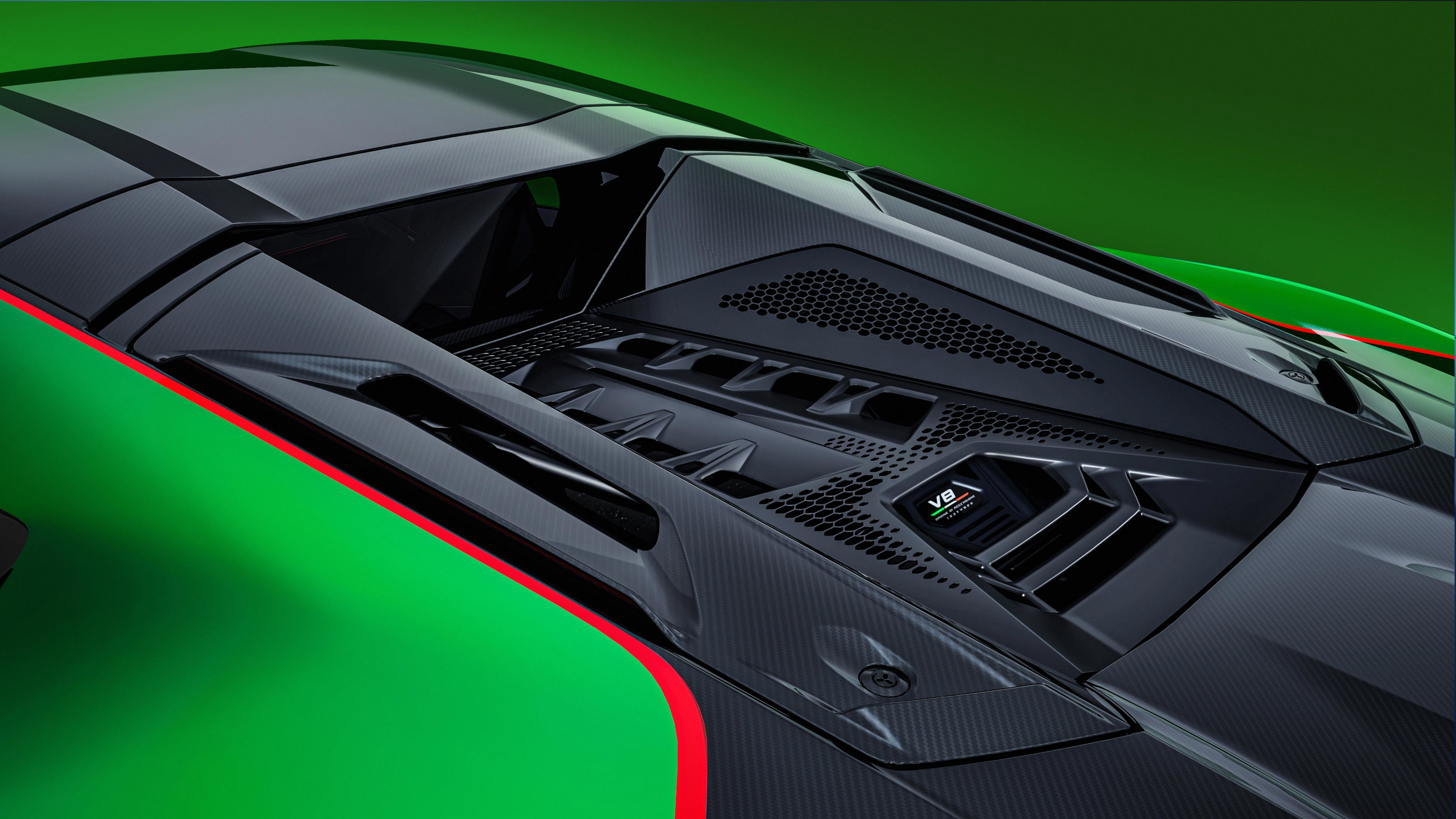
W*: How did the hybrid system inform your design approach?
MB: It had no impact in terms of design. We’re opening the door to the next chapter of Lamborghini. This car is very compact and agile, as short as possible. It’s also the first super sports Lamborghini to have the mandated ADAS (Advanced driver-assistance system) technology.
W*: Is it tough to integrate new technologies like this?
MB: Yes, it’s a real challenge for designers. But ultimately you need boundaries, or else it would be boring.
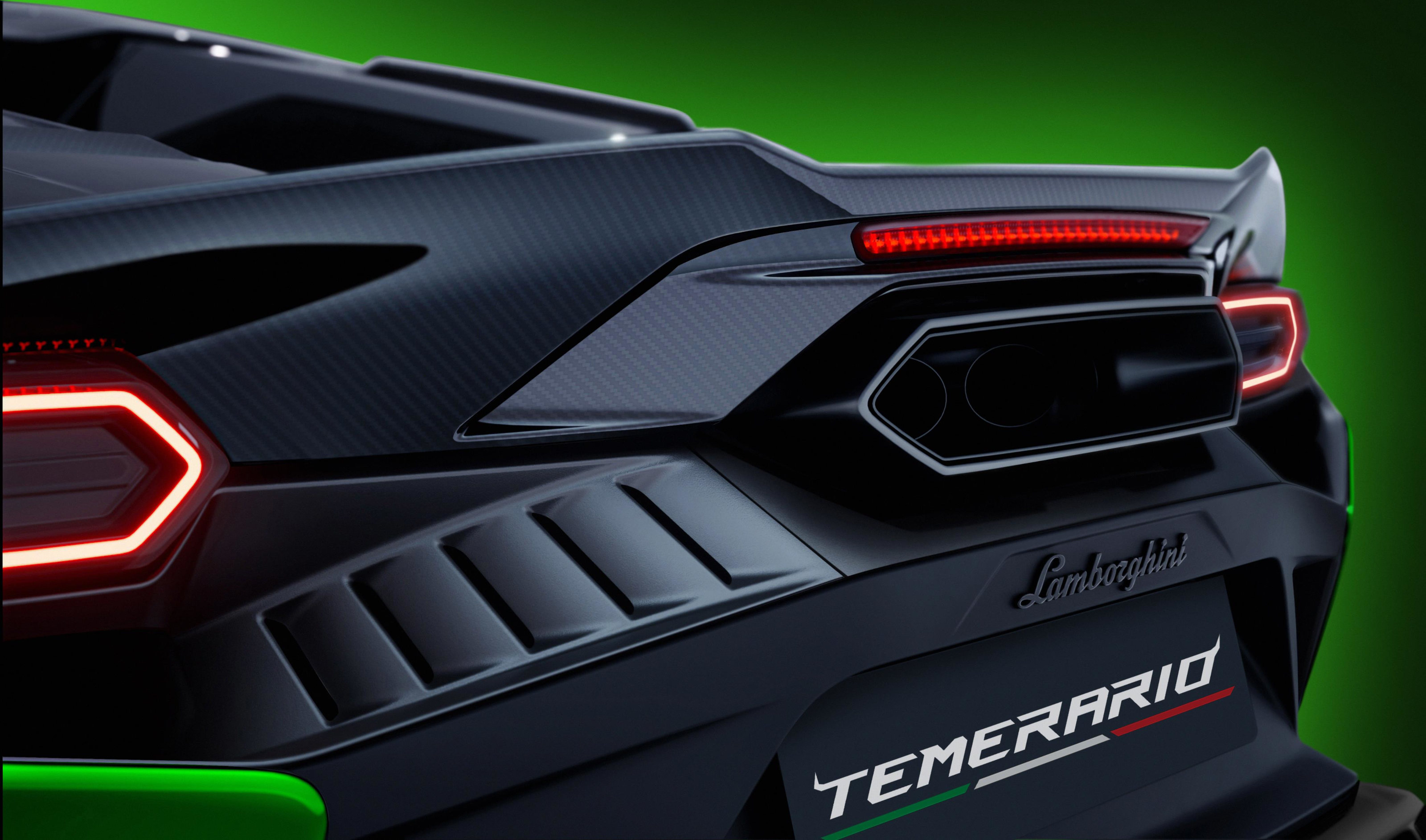
Lamborghini Temerario
Lamborghini Temerario, available from 2025, Lamborghini.com, @Lamborghini.com
Jonathan Bell has written for Wallpaper* magazine since 1999, covering everything from architecture and transport design to books, tech and graphic design. He is now the magazine’s Transport and Technology Editor. Jonathan has written and edited 15 books, including Concept Car Design, 21st Century House, and The New Modern House. He is also the host of Wallpaper’s first podcast.
-
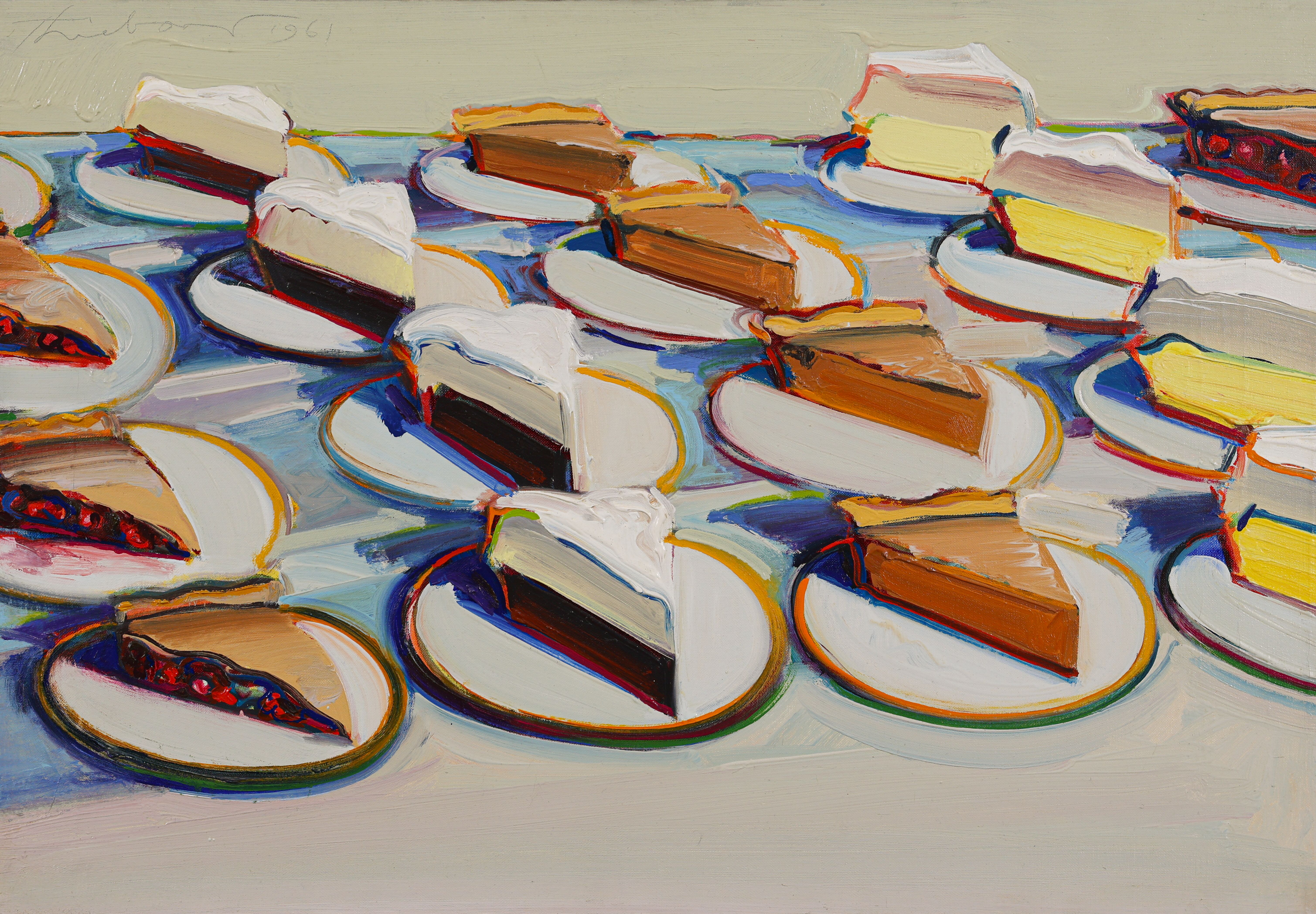 Why are Wayne Thiebaud’s paintings at the Courtauld quite so tempting?
Why are Wayne Thiebaud’s paintings at the Courtauld quite so tempting?The American artist’s thickly painted slices of cake at the Courtauld are some of our favourite artworks seen this year. What makes them so special?
-
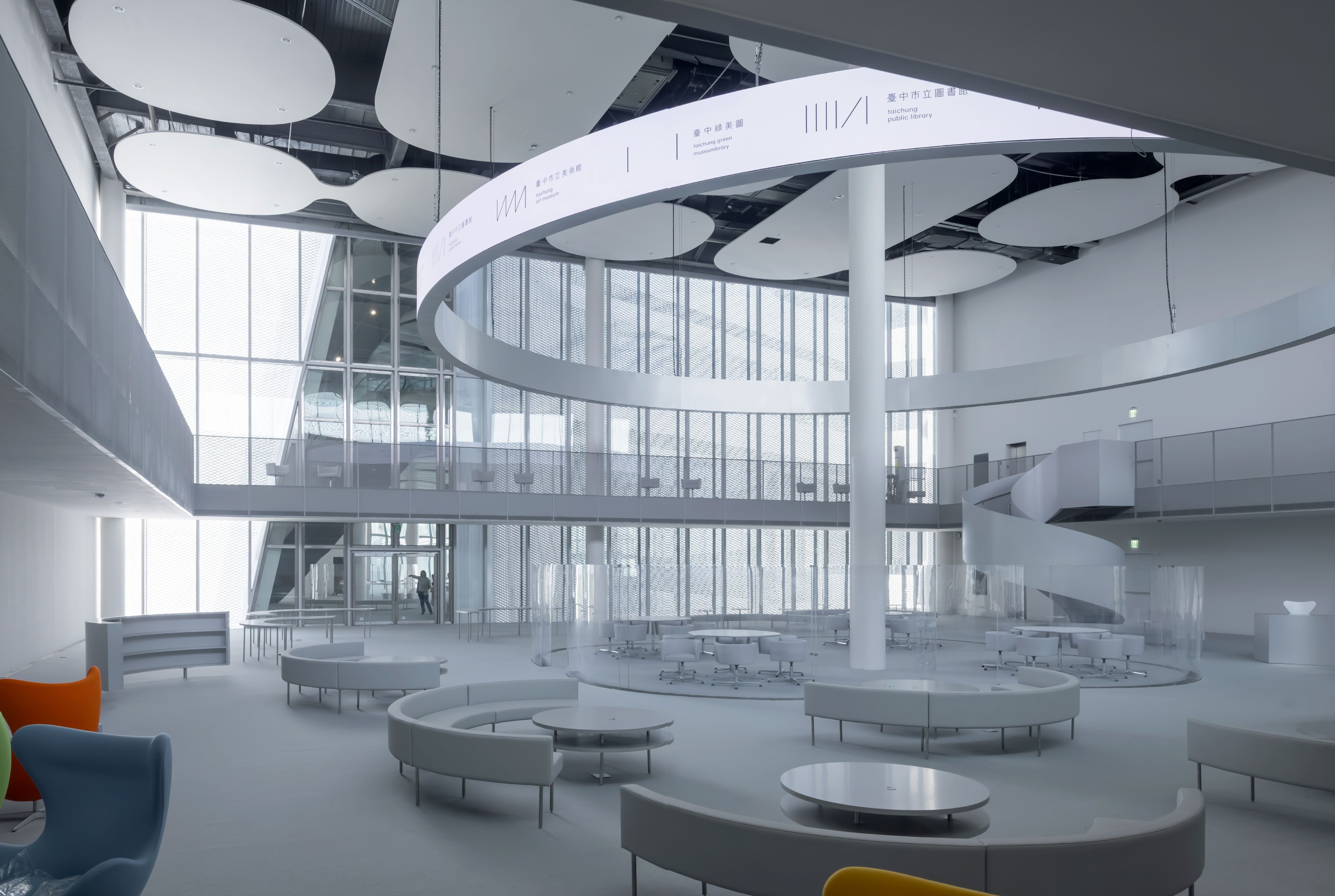 Taiwan’s new ‘museumbrary’ is a paradigm-shifting, cube-shaped cultural hub
Taiwan’s new ‘museumbrary’ is a paradigm-shifting, cube-shaped cultural hubPart museum, part library, the SANAA-designed Taichung Green Museumbrary contains a world of sweeping curves and flowing possibilities, immersed in a natural setting
-
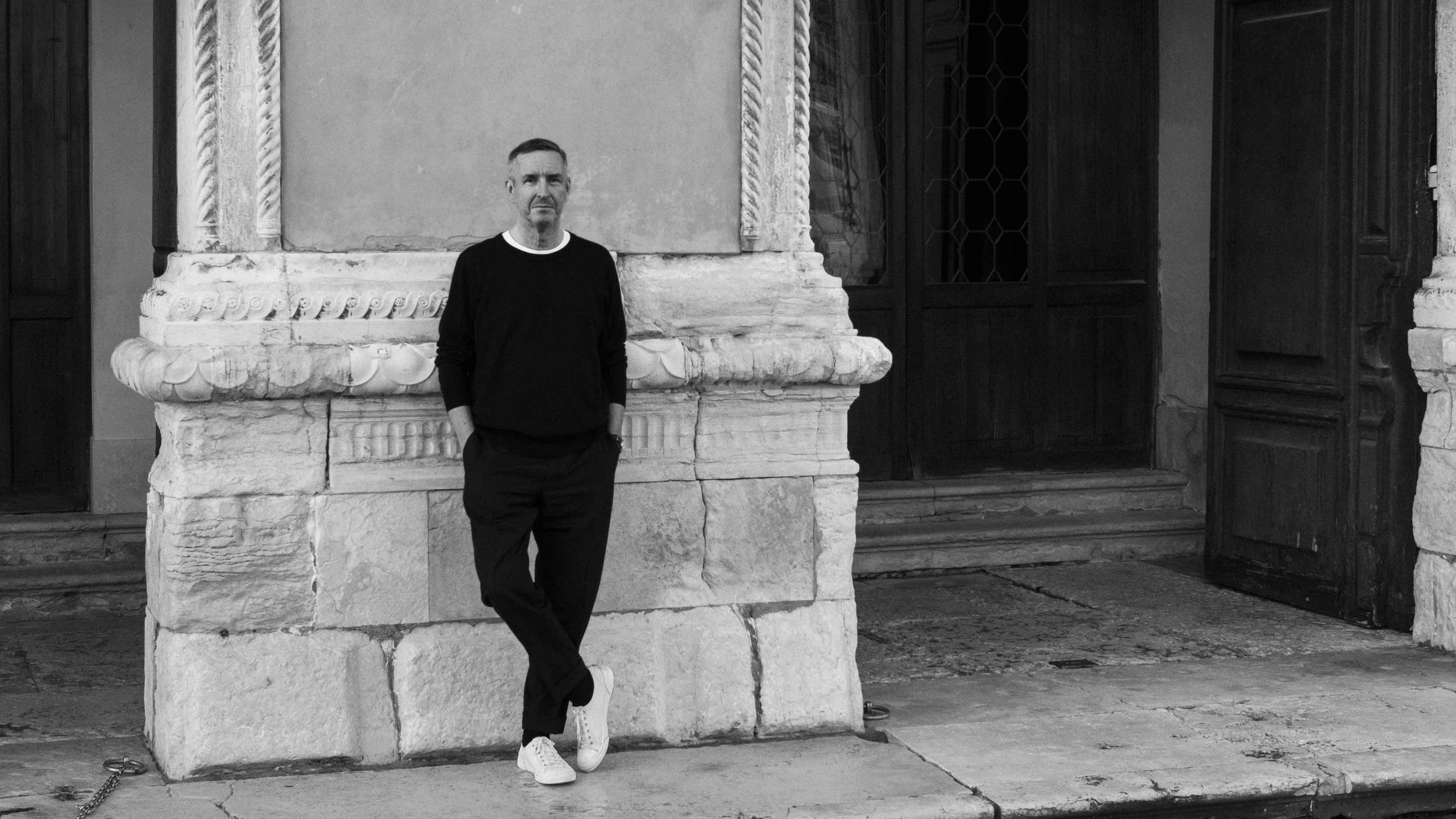 Dries van Noten on why he's building a new home for craft in Venice
Dries van Noten on why he's building a new home for craft in VeniceA year after departing the runway, Dries van Noten unveils his next chapter: the Fondazione Dries Van Noten, a newly announced cultural initiative in Venice celebrating craft in all its forms. Wallpaper* meets the designer to find out why he’s not ready to retire.
-
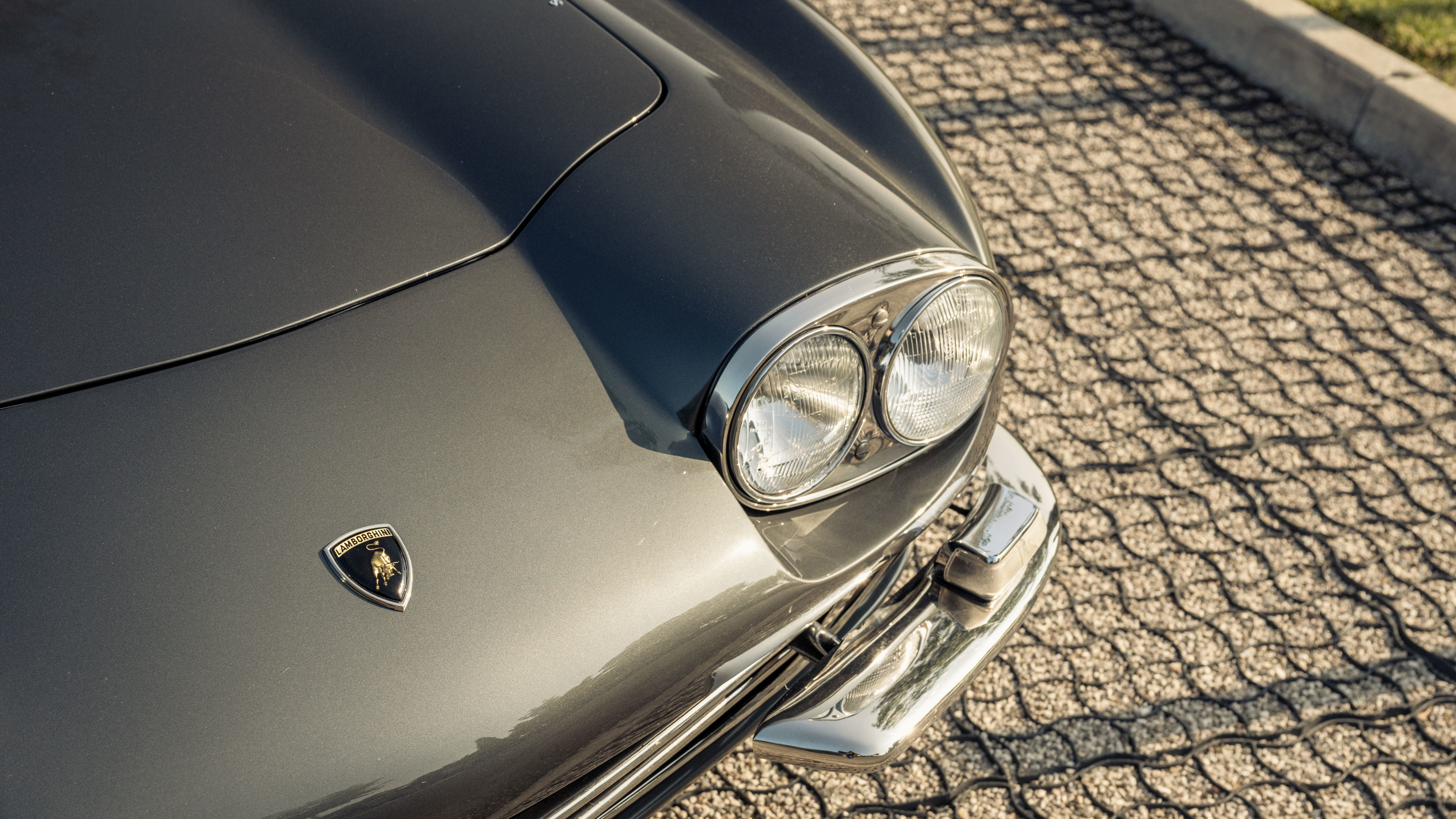 How to spot a fake Lamborghini: inside the sports car manufacturer’s Polo Storico division
How to spot a fake Lamborghini: inside the sports car manufacturer’s Polo Storico divisionFake or fortune? We talk to the team of Lamborghini experts who can spot a priceless classic from a phoney
-
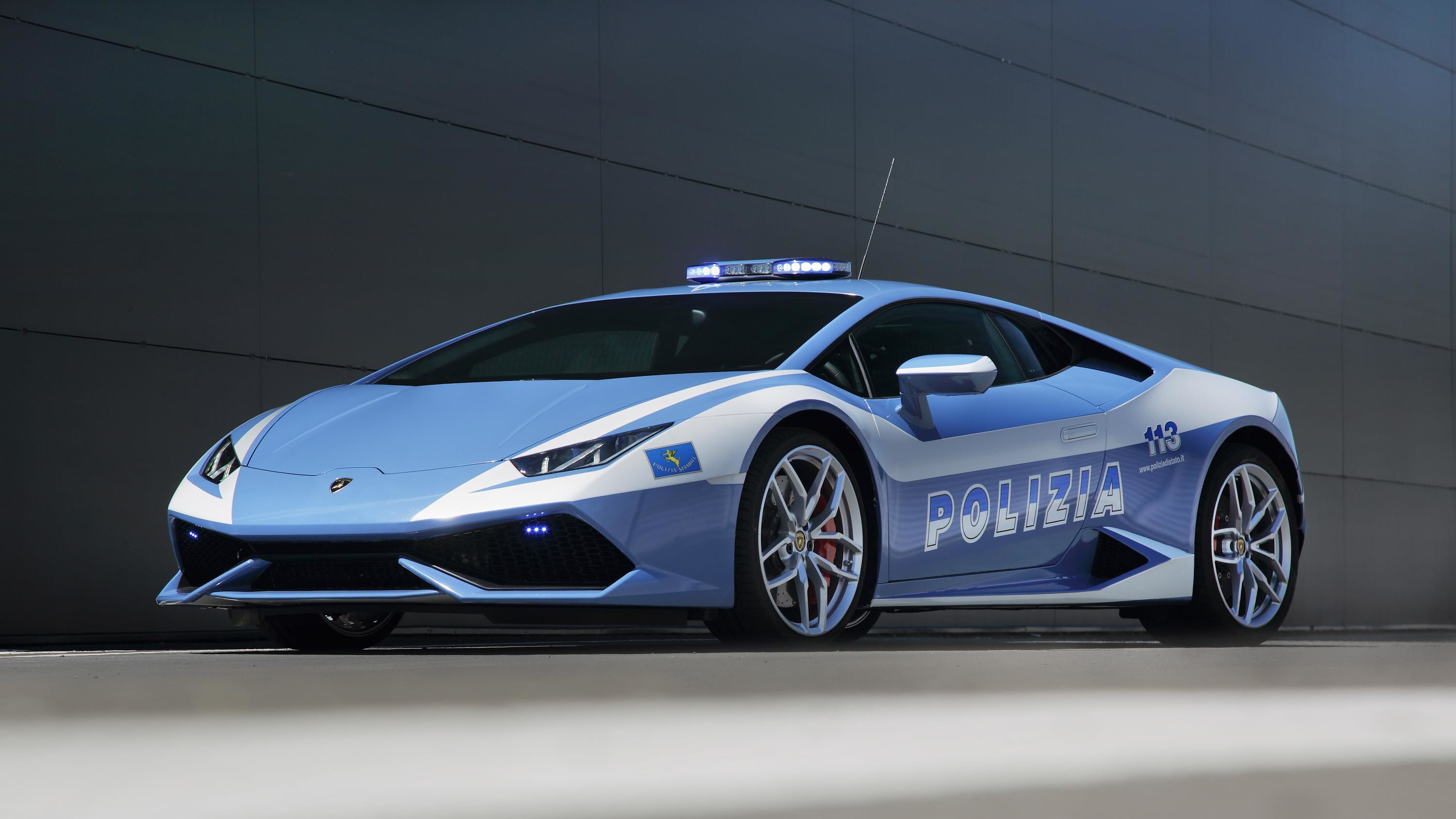 Lamborghini, fast friends with the Italian State Police for two decades
Lamborghini, fast friends with the Italian State Police for two decadesWhen the Italian police need to be somewhere fast, they turn to a long-running partnership with one of the country’s most famed sports car manufacturers, Lamborghini
-
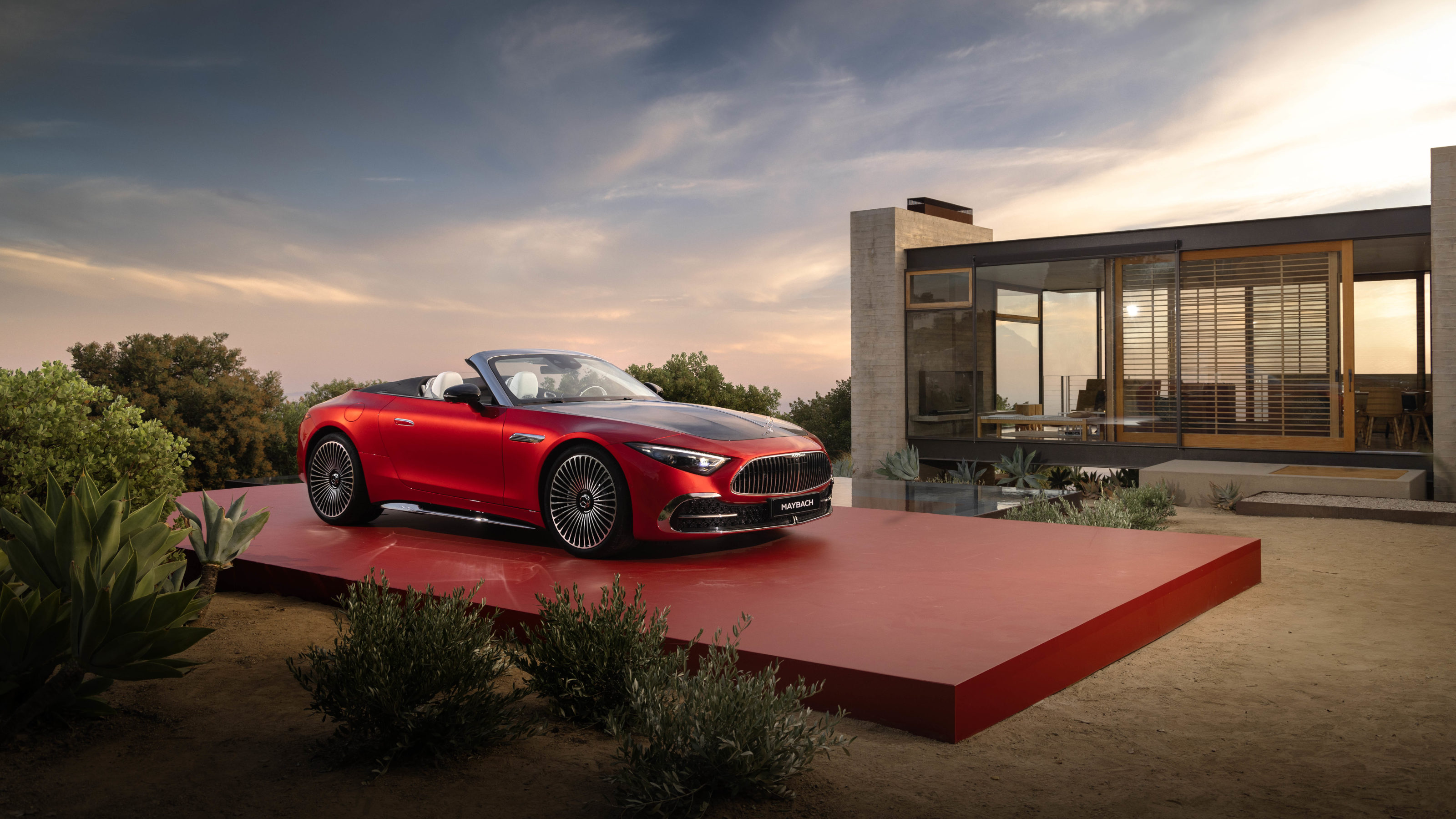 Does the Mercedes-Maybach SL 680 Monogram Series epitomise Pebble Beach culture?
Does the Mercedes-Maybach SL 680 Monogram Series epitomise Pebble Beach culture?Mercedes-Maybach launched its new SL 680 Monogram Series at Monterey Car Week 2024. How does Maybach's 21st-century take on upper-class motoring square with America's most upscale auto show?
-
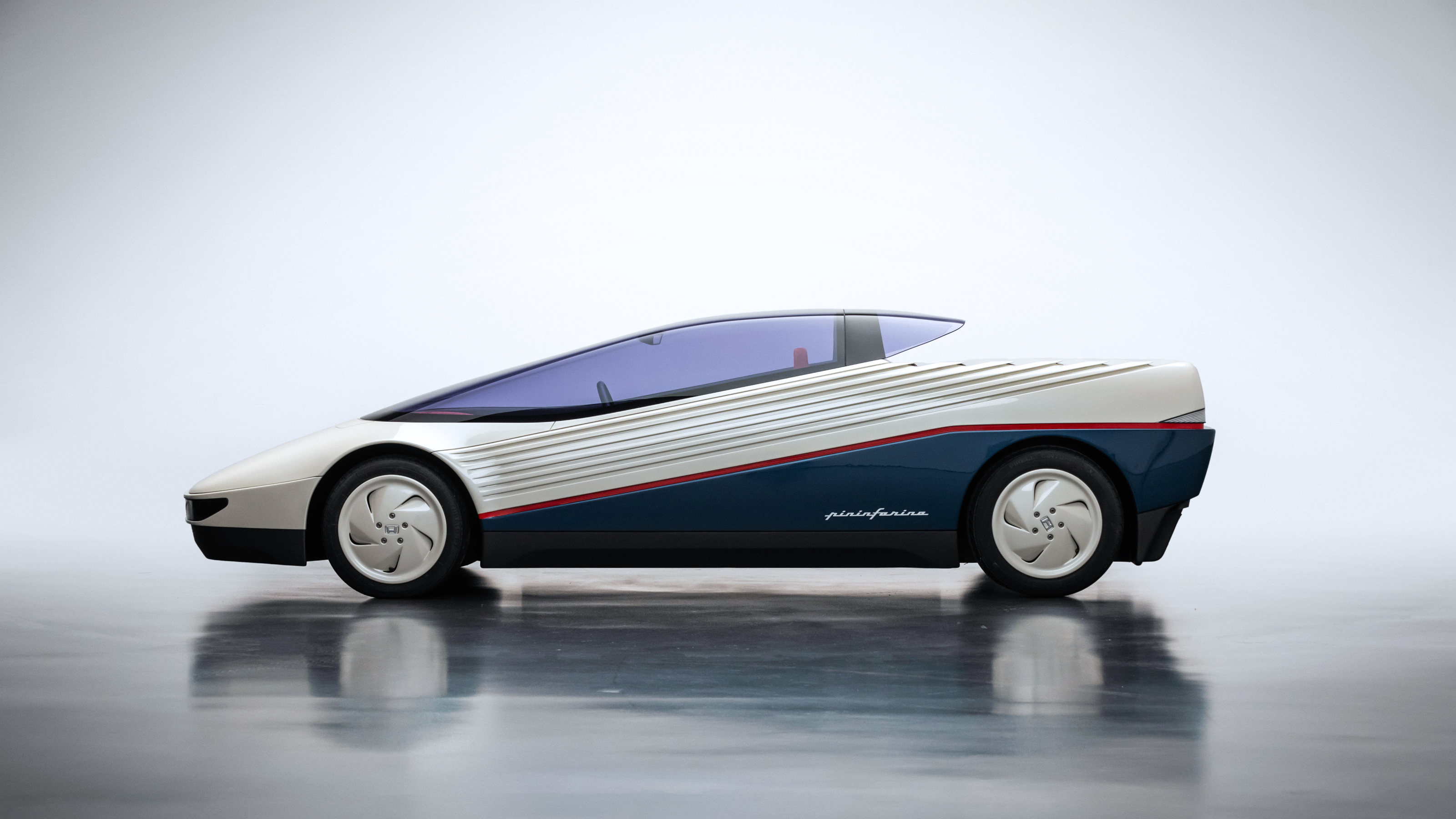 We round up the best new cars making their debut at the 2024 Monterey Car Week
We round up the best new cars making their debut at the 2024 Monterey Car WeekMonterey Car Week means a cavalcade of new metal, alongside some of the most legendary machines from motoring and motorsport’s past.
-
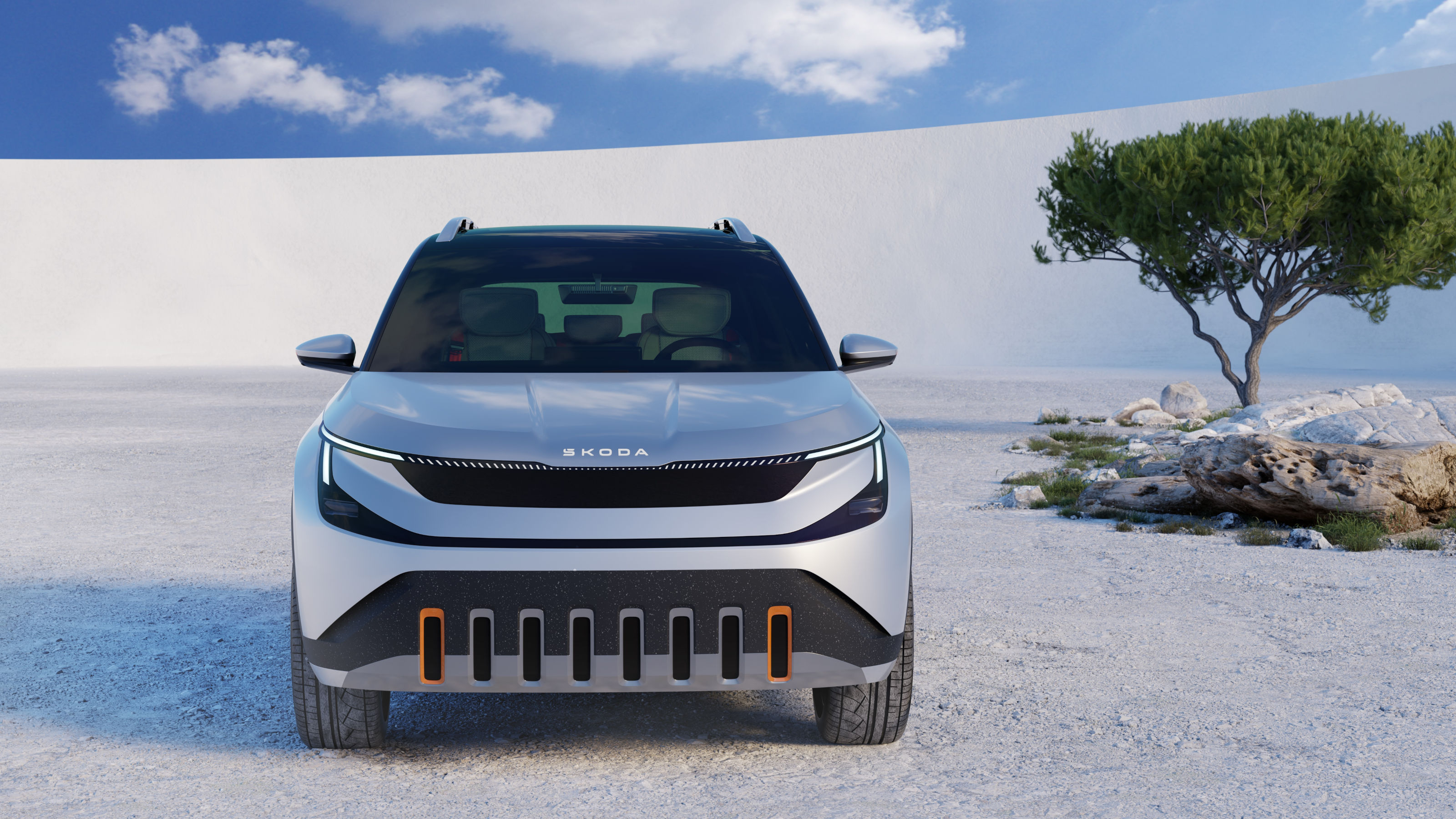 Coming soon: a curated collection of all the new EVs and hybrids that matter
Coming soon: a curated collection of all the new EVs and hybrids that matterWe've rounded up new and updated offerings from Audi, Porsche, Ineos, Mini and more to keep tabs on the shifting sands of the mainstream car market
-
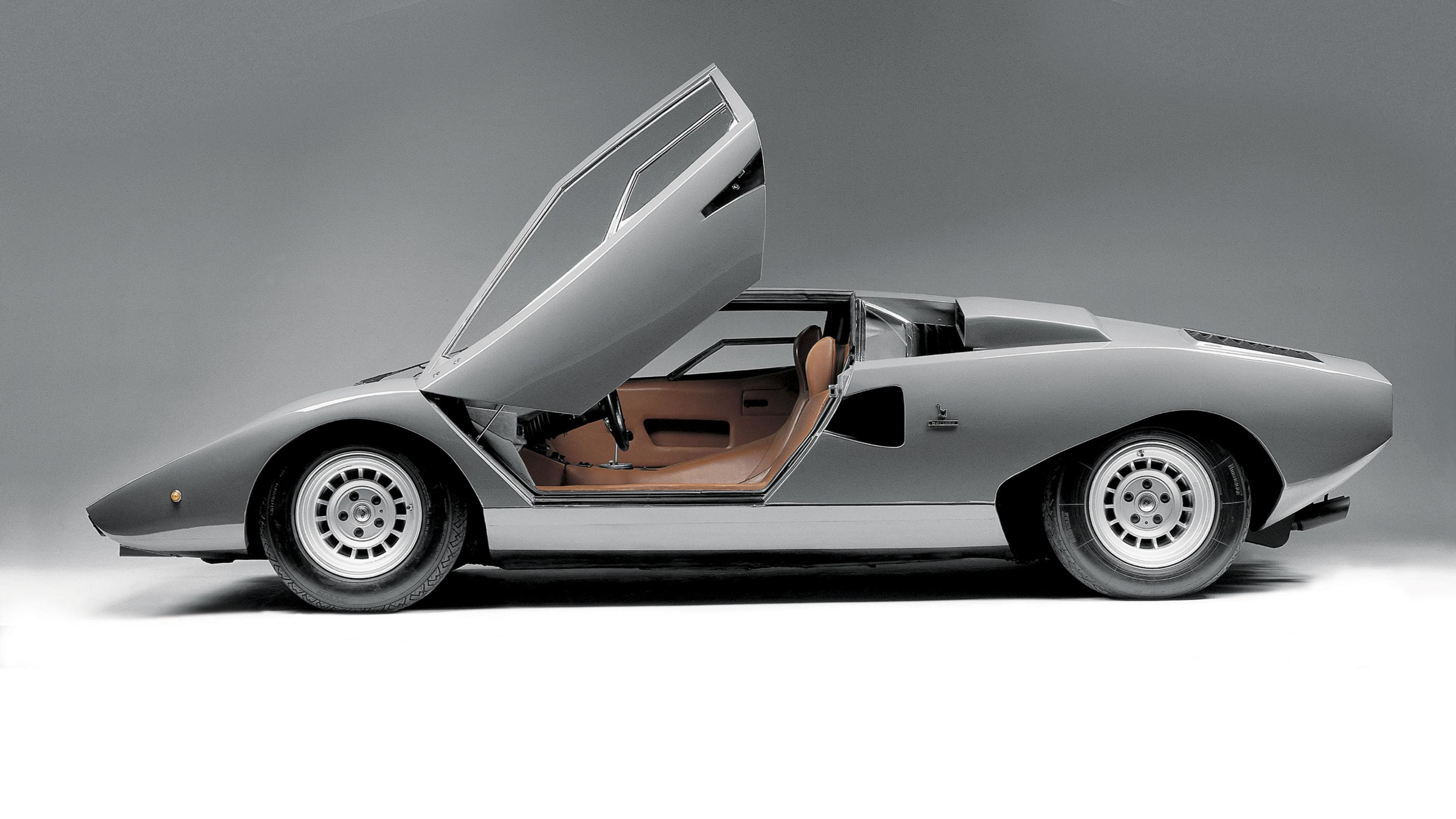 In memoriam: automotive designer Marcello Gandini (1938-2024)
In memoriam: automotive designer Marcello Gandini (1938-2024)As the man behind the form of the modern supercar, Marcello Gandini was hugely influential. We look back at some of his most accomplished designs
-
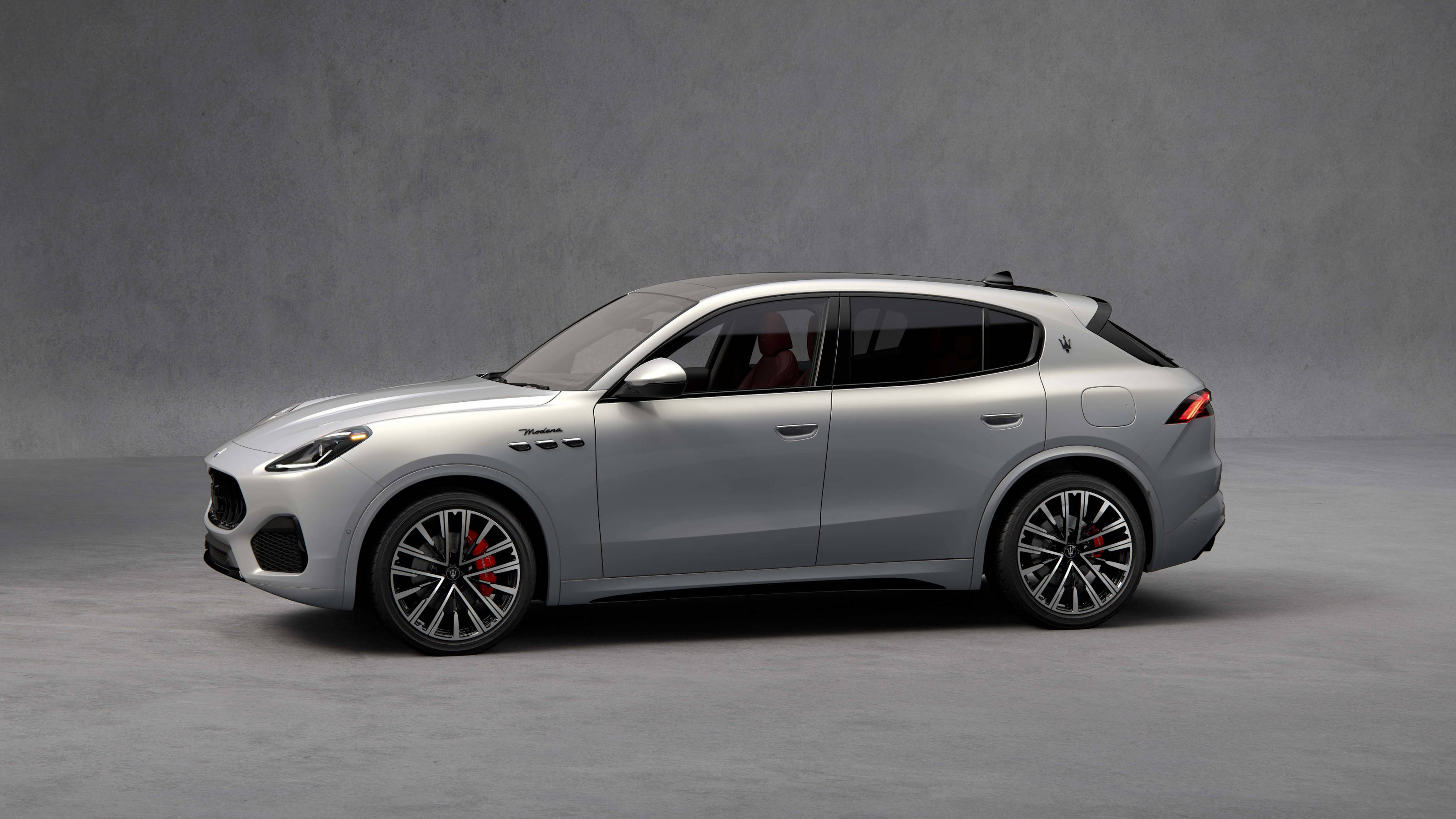 Maserati Grecale Modena hits the middle ground, an SUV for the badge-conscious
Maserati Grecale Modena hits the middle ground, an SUV for the badge-consciousThe Maserati Grecale Modena shows just how far a brand has to go to make an impact in the contemporary car market. How does it reflect on the Italian company’s long heritage?
-
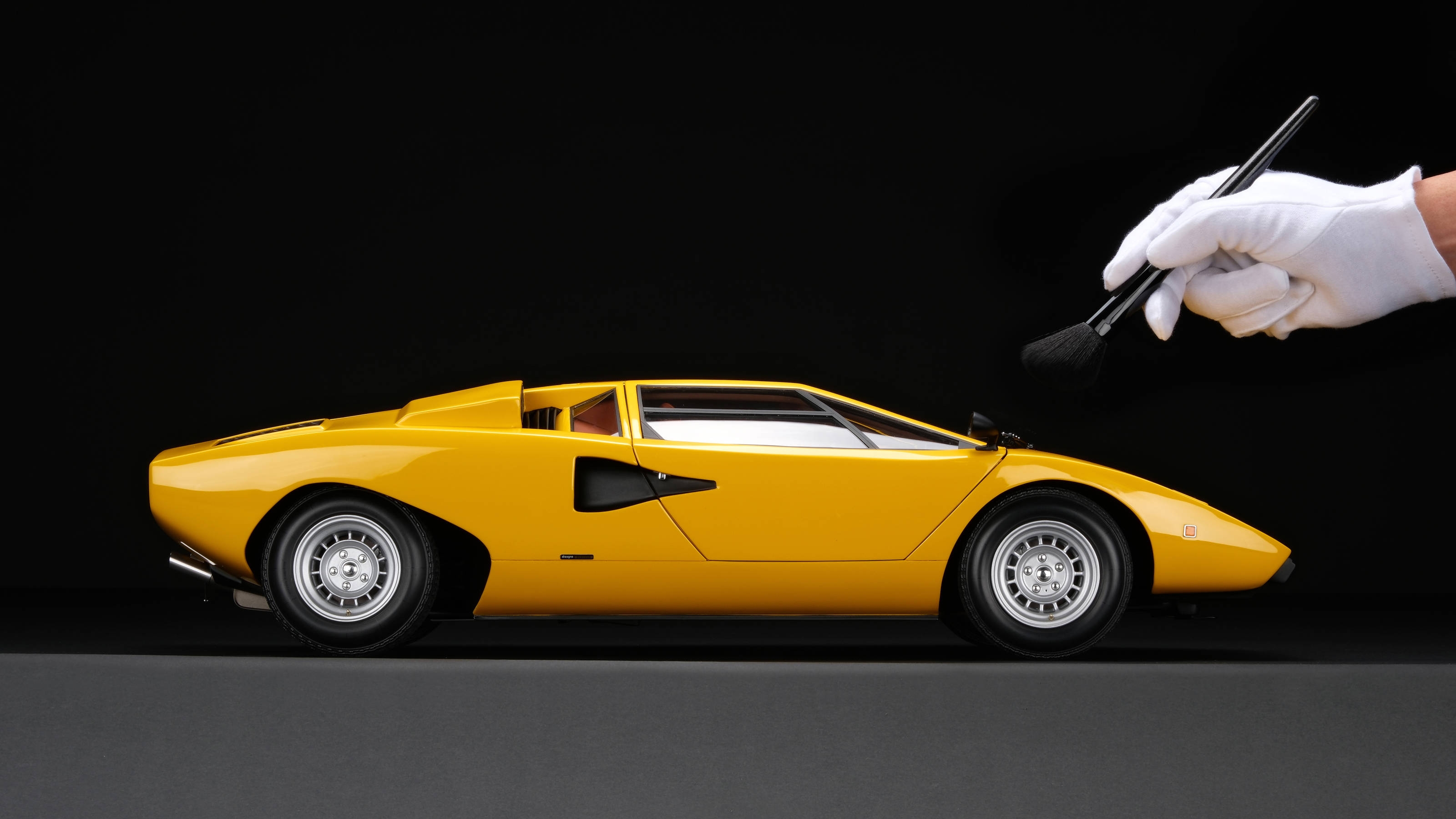 This handmade Lamborghini Countach LP400 is designed to slot on a shelf
This handmade Lamborghini Countach LP400 is designed to slot on a shelfJust 199 examples of this Lamborghini Countach LP400 will be built by Amalgam Collection, recreating every aspect of the iconic 1970s supercar, at a 1:8 scale